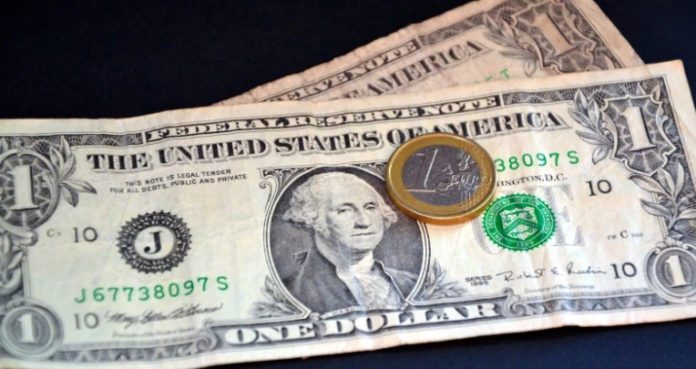The dollar index declined on Friday, hitting a near five-month low, Reuters reports.
According to the data, US annual inflation slowed to below 3 per cent in November, reinforcing market expectations for an interest rate cut next March.
In the 12 months to November, inflation, as measured by the personal consumption expenditure (PCE) price index, was 2.6 per cent, down from 2.9 per cent in October. Excluding the volatile food and energy components, the so-called core PCE price index rose 3.2% year-on-year in November, the smallest increase since April 2021. The US Federal Reserve tracks the PCE price index to achieve its 2% inflation target. Stuart Cole, chief macro economist at Equiti Capital, noted:
“The market will view the data as very much adding weight to the Fed’s recent tilt towards an easier monetary stance. This is the Fed’s preferred measure of inflationary pressures, so if you take into account the fact that some of the effect of the tightening delivered to date is still to be felt, then I think the FOMC may well be starting to privately feel that it’s job done as regards getting inflation back under control.”
Last week’s meeting of the US Federal Reserve prompted traders to plan for several rate cuts in 2024, starting as early as March. After that, the dollar came under selling pressure. US Federal Reserve officials have since abandoned the idea of a rapid rate cut next year.
The dollar index was last down 0.08 per cent to 101.7, having fallen to 101.42, its lowest level since late July. Year-to-date, the index is expected to be down about 2%.
The Federal Reserve’s dovish December rate hike raised the likelihood that the dollar will continue to fall through 2024, although a strengthening US economy could limit the dollar’s decline.
The dollar’s exchange rate against the Swiss franc slid to a near nine-year low on Friday and was last down 0.02%, back to levels seen in January 2015, when the Swiss National Bank caused considerable volatility by ending its policy of a minimum exchange rate for the franc against the euro.
Sterling rose 0.09 % to $1.2703 as traders digested data that British retail sales rose much more than expected in November, but third-quarter GDP was revised lower.
The euro rose 0.02 per cent. The European Central Bank will need at least until spring before it can reassess its policy outlook and market expectations for an interest rate cut in March or April are premature, ECB policymaker Bostjan Vasle said on Monday.
